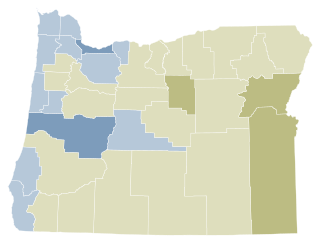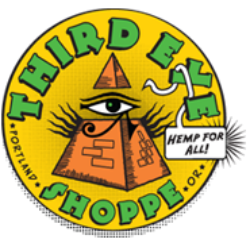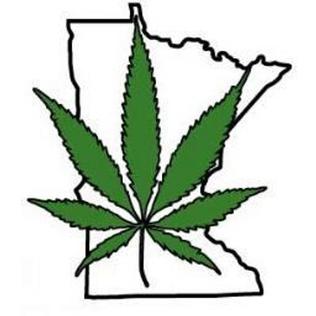Related Research Articles
The National Organization for the Reform of Marijuana Laws is a social welfare organization based in Washington, D.C., that advocates for the reform of marijuana laws in the United States regarding both medical and non-medical use. According to their website, NORML supports "the removal of all penalties for the private possession and responsible use of marijuana by adults, including cultivation for personal use, and casual nonprofit transfers of small amounts" and advocates for "the creation of a legal and regulatory framework for marijuana's production and retail sale to adults". NORML also has a sister organization, NORML Foundation, that focuses on educational efforts and providing legal assistance and support to people affected negatively by current marijuana laws. NORML maintains chapters in a number of US states as well as outside the US in countries such as Canada, France, New Zealand, and South Africa.

The Oregon Medical Marijuana Act, a law in the U.S. state of Oregon, was established by Oregon Ballot Measure 67 in 1998, passing with 54.6% support. It modified state law to allow the cultivation, possession, and use of marijuana by doctor recommendation for patients with certain medical conditions. The Act does not affect federal law, which still prohibits the cultivation and possession of marijuana.
Allen St. Pierre served as the Executive Director of the National Organization for the Reform of Marijuana Laws (NORML), an American non-profit organization that wishes to remove the criminal penalties for and legalize cannabis. St. Pierre was hired by NORML's Board of Directors in 1991 when he worked as a Communications Director for the organization. He gradually rose through the ranks, becoming the Deputy National Director in 1993. When the NORML Foundation was created in 1997, St. Pierre was chosen to be its executive director. The NORML Foundation is a sister organization of NORML that works "to better educate the public about marijuana and marijuana policy options, and to assist victims of the current laws".

In the United States, the non-medical use of cannabis is legalized in 24 states and decriminalized in 7 states, as of November 2023. Decriminalization refers to a policy of reduced penalties for cannabis offenses, typically involving a civil penalty for possessing small amounts, instead of criminal prosecution or the threat of arrest. In jurisdictions without penalty the policy is referred to as legalization, although the term decriminalization is sometimes used for this purpose as well.

Cannabis in Oregon is legal for both medical and recreational use. In recent decades, the U.S. state of Oregon has had a number of legislative, legal, and cultural events surrounding use of cannabis. Oregon was the first state to decriminalize the possession of small amounts of cannabis, and among the first to authorize its use for medical purposes. An attempt to recriminalize possession of small amounts of cannabis was turned down by Oregon voters in 1997.

Portland's Hempstalk Festival is an annual event in Portland, Oregon advocating decriminalization of marijuana for medicinal, industrial, and recreational use. Founded in 2005, the festival often takes place the weekend after Labor Day and features food vendors, live music, and information booths. The event has always been free to attend.

In the United States, the use of cannabis for medical purposes is legal in 38 states, four out of five permanently inhabited U.S. territories, and the District of Columbia, as of March 2023. Ten other states have more restrictive laws limiting THC content, for the purpose of allowing access to products that are rich in cannabidiol (CBD), a non-psychoactive component of cannabis. There is significant variation in medical cannabis laws from state to state, including how it is produced and distributed, how it can be consumed, and what medical conditions it can be used for.
The World Famous Cannabis Cafe is a former Cannabis dispensary open between 2009 and 2016 in Portland, Oregon.

Oregon Ballot Measure 80, also known as the Oregon Cannabis Tax Act, OCTA and Initiative-9, was an initiated state statute ballot measure on the November 6, 2012 general election ballot in Oregon. It would have allowed personal marijuana and hemp cultivation or use without a license and created a commission to regulate the sale of commercial marijuana. The act would also have set aside two percent of profits from cannabis sales to promote industrial hemp, biodiesel, fiber, protein, and oil.

In the United States, cannabis is legal in 38 of 50 states for medical use and 24 states for recreational use. At the federal level, cannabis is classified as a Schedule I drug under the Controlled Substances Act, determined to have a high potential for abuse and no accepted medical use, prohibiting its use for any purpose. Despite this prohibition, federal law is generally not enforced against the possession, cultivation, or intrastate distribution of cannabis in states where such activity has been legalized.

Washington Initiative 502 (I-502) "on marijuana reform" was an initiative to the Washington State Legislature, which appeared on the November 2012 general ballot, passing by a margin of approximately 56 to 44 percent. Originally submitted to the Washington Secretary of State during the summer of 2011, enough signatures were collected and submitted by December to meet the required 241,153 signatures, sending it to the legislature. When the legislature adjourned without action in April, Initiative 502 automatically advanced to the November 2012 general ballot. It was approved by popular vote on November 6, and took effect over the course of a year, beginning with certification no later than December 6, 2012. Along with a similar Colorado measure, Initiative 502 was credited for encouraging voter turnout of 81%, the highest in the nation.

The legal history of cannabis in the United States began with state-level prohibition in the early 20th century, with the first major federal limitations occurring in 1937. Starting with Oregon in 1973, individual states began to liberalize cannabis laws through decriminalization. In 1996, California became the first state to legalize medical cannabis, sparking a trend that spread to a majority of states by 2016. In 2012, Washington and Colorado became the first states to legalize cannabis for recreational use.

The "Burnside Burn" was an event held on the Burnside Bridge in Portland, Oregon, starting at midnight on July 1, 2015, the day recreational marijuana became legal in the U.S. state of Oregon. It was organized by Portland NORML, the local chapter of the National Organization for the Reform of Marijuana Laws, having originated from its executive director, who wanted to photograph himself in front of the White Stag sign in the moments after Oregon Ballot Measure 91 took effect. The crowd, larger than anticipated, numbered in the thousands and at times blocked traffic lanes on the bridge. Some attendees wanted to commemorate the moment, while others were motivated by announcements of free marijuana and seeds. No fines were issued for consumption in public. The event was covered by cannabis publications, local and national news outlets, and the HBO television series Vice.

Cannabis in Washington relates to a number of legislative, legal, and cultural events surrounding the use of cannabis. On December 6, 2012, Washington became the first U.S. state to legalize recreational use of marijuana and the first to allow recreational marijuana sales, alongside Colorado. The state had previously legalized medical marijuana in 1998. Under state law, cannabis is legal for medical purposes and for any purpose by adults over 21.

Third Eye Shoppe, commonly known as The Third Eye, was a head shop in Portland, Oregon's Hawthorne district and Richmond neighborhood, in the United States. The shop was founded in 1987 and owned by cannabis and counterculture activist Jack Herer. His son, Mark Herer, took over as the shop's owner in 2001. The Third Eye closed on March 31, 2017, as a result of declining sales, development of the surrounding neighborhood, increasing health care costs, and increased competition. For nearly thirty years, the shop was associated with Portland's cannabis culture and recreational drug tourism, and was included in Willamette Week's annual "Best of Portland" reader's poll several times.

Oregon NORML is the National Organization for the Reform of Marijuana Laws (NORML) affiliate for the U.S. state of Oregon.

Portland NORML is the National Organization for the Reform of Marijuana Laws (NORML) affiliate for Portland, Oregon, in the United States. The chapter was established in January 2015 by Portland-based radio host and cannabis activist Russ Belville. Scott Gordon serves as its executive director.

Minnesota NORML is the National Organization for the Reform of Marijuana Laws (NORML) affiliate for the U.S. state of Minnesota. As of 2017, Michael Ford served as the organization's executive director.
Women have been active in the cannabis industry, cannabis legalization, cannabis testing, and cannabis rights since the earliest days of commercialization, but they have also faced gendered obstacles impeding their growth in an industry worth over 12 million dollars since 2019. "The American cannabis industry accounted for $10 billion of 2018’s [global] figures, with the average U.S. dispensary pulling in $3 million a year."
References
- 1 2 3 4 5 6 Campbell, Andy (November 4, 2015). "These 10 Women Entrepreneurs Are Smoking The Marijuana Industry". The Huffington Post . Archived from the original on April 18, 2017. Retrieved April 17, 2017.
- 1 2 3 Crombie, Noelle (February 29, 2016). "World Famous Cannabis Cafe to close due to Oregon's clean air law". The Oregonian . Portland, Oregon: Advance Publications. ISSN 8750-1317. Archived from the original on October 22, 2017. Retrieved April 17, 2017.
- 1 2 Terry, Lauren (June 30, 2015). "The Fame: Madeline Martinez is bringing back Portland's famous World Famous Cannabis Cafe". Willamette Week . Portland, Oregon: City of Roses Newspapers. Archived from the original on April 18, 2017. Retrieved April 17, 2017.
- ↑ Loew, Tracy (November 23, 2009). "Medical marijuana users socialize, smoke at Oregon cafe". USA Today . Gannett Company. ISSN 0734-7456. Archived from the original on April 5, 2017. Retrieved April 17, 2017.
- ↑ Mirk, Sarah (May 26, 2010). "Cannabis Cafe Closes! Pot Prices Plummet!". The Portland Mercury . Index Publishing. Archived from the original on September 6, 2015. Retrieved April 17, 2017.
- ↑ "Why Women Fight for Marijuana Legalization". NORML Women's Alliance. April 2, 2014. Archived from the original on April 18, 2017. Retrieved February 2, 2017.
- ↑ "Madeline Martinez". National Organization for the Reform of Marijuana Laws. Archived from the original on December 1, 2016. Retrieved February 2, 2017.